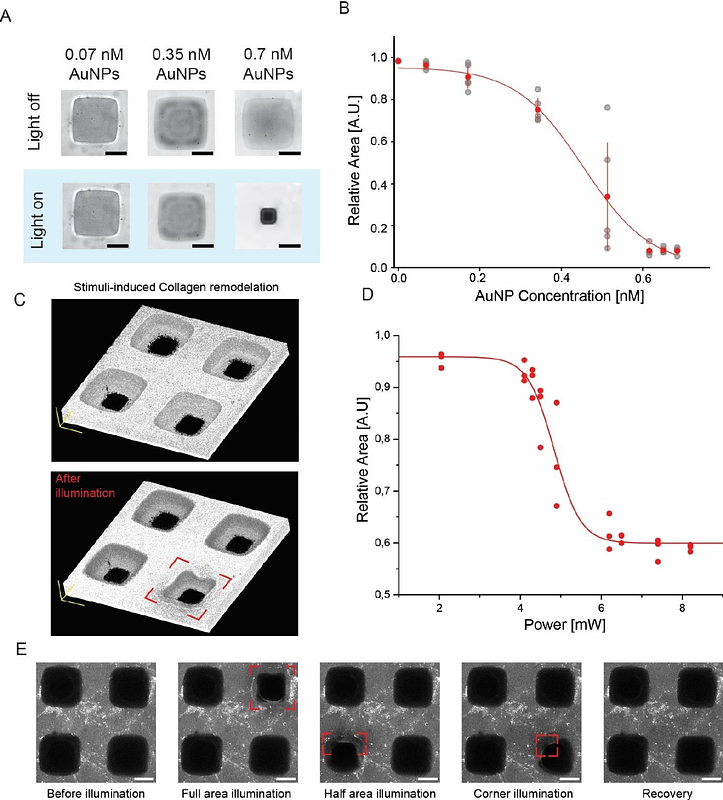Stimulus-induced mechanical compaction of biological polymer networks via smart hydrogel microstructures

Stimulus-induced mechanical compaction of biological polymer networks via smart hydrogel microstructures
Salas-Quiroz, V.; Esch, K.; Zieske, K.
AbstractThe remodeling of the extracellular matrix by mechanical forces plays a crucial role in organizing cellular microenvironments. To study these mechanical perturbations, various methods have been developed to modify the cellular microenvironment and to apply controlled forces. However, most existing approaches rely either on instruments that cannot be integrated into lab-on-chip systems or on small probes with limited spatiotemporal precision. Here, we present a lab-on-chip system that enables spatially and temporally controlled mechanical perturbations of biological polymer networks. First, we fabricated thermoresponsive hydrogel microstructures within flow chambers and optimized their material composition and photopolymerization parameters. Second, we demonstrated the temporally controlled compression of Matrigel and collagen networks through temperature-stimulated expansion of the hydrogel microstructures. Following compression, Matrigel was plastically deformed, whereas the collagen network relaxed elastically. Finally, we showed that the compression of collagen networks can be spatially modulated by integrating hydrogel structures responsive to light stimuli. By mimicking the dynamic behavior of cells that remodel biological polymer networks, our method provides a versatile platform for future studies on extracellular matrix remodeling and the effects of mechanical forces on cellular microenvironments in both physiological and pathological contexts.